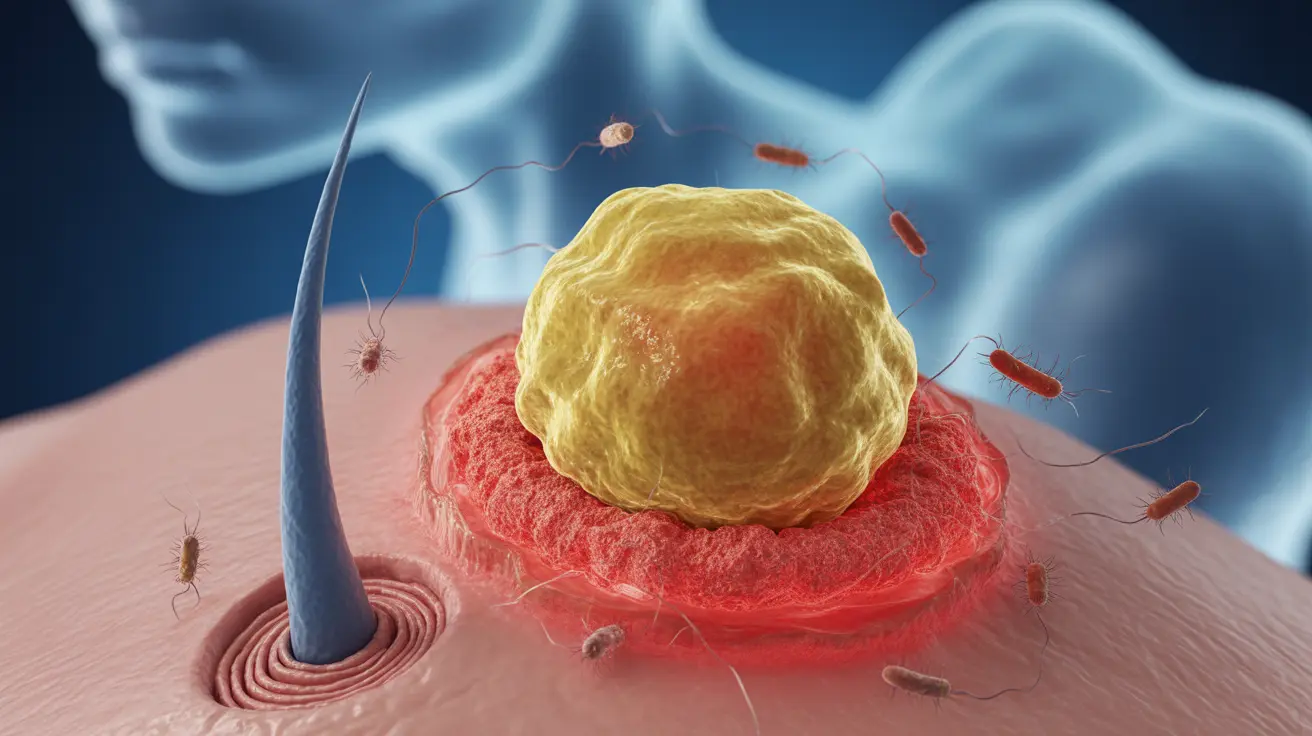Boils are painful, pus-filled skin infections that develop around hair follicles or oil glands. Understanding their contagious nature and proper management is crucial for preventing their spread and ensuring effective treatment. These bacterial skin infections can range from minor inconveniences to serious health concerns, especially when caused by antibiotic-resistant bacteria.
If you're dealing with a boil or caring for someone who has one, it's essential to understand how these infections spread and what precautions to take. Let's explore the key aspects of boil infections, including their transmission, prevention strategies, and when to seek medical attention.
How Boils Spread and Their Contagious Nature
Boils are typically caused by Staphylococcus aureus bacteria, which can spread through direct contact with infected skin or contaminated objects. While boils themselves aren't directly contagious, the bacteria causing them can transfer from person to person or to different areas of the same person's body.
The infection can spread through:
- Close skin-to-skin contact with an infected person
- Sharing personal items like towels or razors
- Touching contaminated surfaces
- Poor hand hygiene after touching an infected area
Risk Factors and Common Causes
Several factors can increase your susceptibility to developing boils:
- Compromised immune system
- Diabetes
- Poor personal hygiene
- Close contact with someone who has boils
- Certain skin conditions like eczema
- Living in crowded conditions
Prevention and Hygiene Practices
Maintaining proper hygiene is crucial for preventing boils and stopping their spread. Essential preventive measures include:
- Washing hands frequently with soap and water
- Keeping skin clean and dry
- Avoiding sharing personal items
- Promptly cleaning and covering any cuts or scrapes
- Regular laundering of bedding and towels
Managing Existing Boils
If you already have a boil, proper care is essential to prevent spread:
- Keep the area clean and covered
- Avoid touching or squeezing the boil
- Use warm compresses to promote natural drainage
- Change bandages regularly using clean materials
- Wash hands thoroughly before and after wound care
When Medical Treatment Is Necessary
While some boils heal on their own, certain situations require professional medical attention:
- Boils that are extremely painful or large
- Multiple boils occurring simultaneously
- Boils on the face or spine
- Fever accompanying the infection
- No improvement after a week of home care
- Recurring boils
Frequently Asked Questions
Are boils contagious and how does the infection spread to others?
While boils themselves aren't directly contagious, the bacteria causing them can spread through direct contact with infected skin or contaminated items. Proper hygiene and wound care are essential to prevent transmission.
How can I prevent boils from spreading to other parts of my body or to people around me?
Keep boils covered, practice good hand hygiene, avoid sharing personal items, and maintain clean bandages. Don't squeeze or pop boils, as this can spread the infection.
When should I seek medical treatment for a boil?
Seek medical attention if the boil is large, extremely painful, accompanied by fever, located on your face or spine, or shows no improvement after a week of home care.
What causes recurrent boils and how are they related to staph bacteria or MRSA?
Recurrent boils often indicate colonization with Staphylococcus bacteria, possibly including antibiotic-resistant strains like MRSA. Underlying health conditions, poor hygiene, or close contact with infected individuals can contribute to recurring infections.
What are the best hygiene practices to reduce the risk of developing or spreading boils?
Maintain regular handwashing, keep skin clean and dry, avoid sharing personal items, promptly treat minor skin injuries, and regularly clean frequently touched surfaces and personal items.




